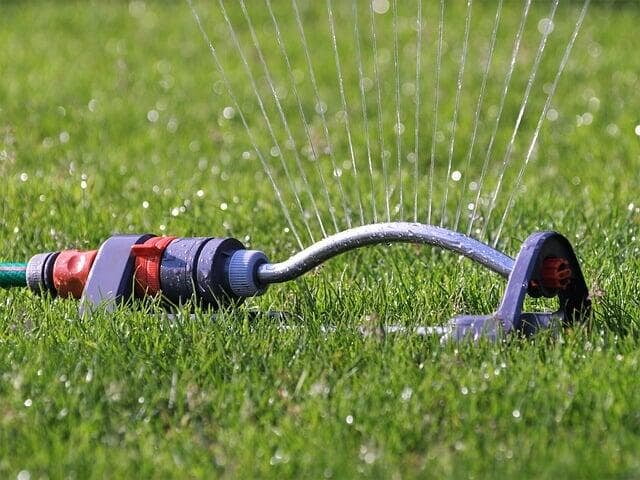With increasing environmental concerns and regulatory pressures, industries across sectors are exploring efficient ways to conserve water resources. Recycling greywater has emerged as a practical solution to address water scarcity while promoting sustainability. Let’s delve into the benefits, process, and applications of greywater recycling for industrial settings.
What is Greywater?
What is Greywater?
Greywater refers to wastewater generated from sources like sinks, showers, washing machines, and other non-sewage sources. It is typically less contaminated than blackwater (from toilets) and is therefore more feasible to recycle. In industries, greywater can come from facilities like kitchens, bathrooms, and cleaning processes, offering a significant opportunity for reuse after minimal treatment.
Benefits of Recycling Greywater in Industries
Benefits of Recycling Greywater in Industries
- Water Conservation: Recycling greywater reduces the demand for fresh water, easing the pressure on local water resources and helping industries maintain a sustainable water footprint.
- Cost Savings: By reusing treated greywater, industries can lower their water procurement costs and reduce wastewater discharge fees, leading to substantial cost savings over time.
- Reduced Environmental Impact: Discharging untreated greywater can harm local ecosystems. Recycling it minimizes pollution and supports industries in meeting environmental regulations and corporate sustainability goals.
- Enhanced Efficiency in Water Usage: Greywater recycling maximizes resource efficiency, which is especially beneficial in water-intensive industries like textiles, food processing, and hospitality.
Greywater Recycling Process in Industrial Settings
Greywater Recycling Process in Industrial Settings
- Collection: Greywater is collected from designated sources within the facility, such as showers, handwashing stations, and equipment cleaning stations.
- Primary Treatment: The initial treatment phase involves filtration to remove larger particles and sedimentation to let solids settle.
- Secondary Treatment: This stage focuses on reducing contaminants through biological treatment (using bacteria to break down organic matter) or chemical treatment (for disinfection).
- Advanced Treatment (Optional): For industries requiring higher purity levels, technologies like membrane filtration, UV treatment, and advanced oxidation may be employed to further purify the greywater.
- Storage and Distribution: Once treated, the greywater is stored in a holding tank and redistributed for non-potable applications within the facility.
Applications of Recycled Greywater in Industries
Applications of Recycled Greywater in Industries
Industries can integrate recycled greywater into various processes, depending on their specific needs and local regulations:
- Cooling Towers: Cooling processes consume large amounts of water, making them ideal for using treated greywater.
- Equipment Washing: Recycled greywater is often suitable for cleaning and maintenance tasks, reducing dependency on fresh water.
- Irrigation and Landscaping: Greywater can be used to irrigate industrial landscapes and green spaces, saving fresh water for critical applications.
- Toilet Flushing: Greywater recycling is particularly beneficial for large facilities with extensive restroom usage, as treated greywater can efficiently replace fresh water for flushing.
Technologies Used in Greywater Recycling for Industries
Technologies Used in Greywater Recycling for Industries
Industries have several technologies at their disposal for recycling greywater:
- Bioreactors: These systems use microbial action to break down organic matter, making greywater suitable for reuse.
- Membrane Filtration: Ultrafiltration or microfiltration can remove fine particles, providing high-quality recycled water.
- Ultraviolet (UV) Disinfection: UV systems help disinfect greywater, eliminating pathogens and making it safer for reuse.
- Advanced Oxidation Processes (AOPs): These processes involve chemicals like ozone or hydrogen peroxide to eliminate contaminants, providing a high degree of purification.
To experience cutting-edge technologies, visit the Water Expo 2025 in Chennai from 26 – 28 February at Chennai Trade Centre. The expo will feature advanced greywater recycling technologies, including bioreactors, membrane filtration, and UV disinfection systems. Explore how these innovations can fit into your industrial setup for efficient water reuse.
Case Studies: Successful Greywater Recycling Implementations
Case Studies: Successful Greywater Recycling Implementations
- Textile Industry: Some textile facilities are using greywater recycling systems to reduce fresh water consumption by as much as 40%, particularly in non-critical processes like cleaning and cooling.
- Hospitality Industry: Hotels and resorts have installed greywater recycling systems to conserve water by using treated greywater for landscaping and toilet flushing, significantly reducing water usage.
- Food and Beverage: Food processing plants, especially those with high cleaning needs, are adopting greywater recycling to reduce operational costs while maintaining hygiene standards.
See live demonstrations of greywater recycling systems in action at the Water Expo 2025! From small-scale units for smaller facilities to large-scale industrial systems, witness firsthand how these solutions can seamlessly integrate into your processes. The Expo will feature case studies and panels where industry leaders share how greywater recycling has transformed their operations. Get a practical understanding of the challenges, benefits, and future trends in greywater recycling.
Challenges and Considerations
Challenges and Considerations
While greywater recycling offers numerous benefits, industries may encounter some challenges:
- Initial Setup Costs: Installing greywater recycling systems involves capital investment, though long-term savings can offset this.
- Regulatory Compliance: Greywater use is subject to local regulations, which may limit its applications in certain industries or require specific treatment standards.
- Maintenance Requirements: Greywater recycling systems require regular maintenance to ensure the water quality remains consistent and safe for reuse.
The Future of Greywater Recycling in Industry
The Future of Greywater Recycling in Industry
As sustainability becomes a cornerstone of industrial operations, greywater recycling is poised to grow, supported by advancements in treatment technology and a shift toward eco-friendly practices. With continued investment, industries can look forward to more accessible, efficient, and cost-effective solutions for greywater recycling, making it an essential part of sustainable water management. Visit the Water Expo 2025 to explore, learn, and take the next step toward greener, smarter water use.
Recycling greywater is more than a cost-saving measure; it's a commitment to sustainable development and environmental stewardship. Embracing greywater recycling can help industries make significant strides toward reducing their water footprint and contributing to a more sustainable future.


